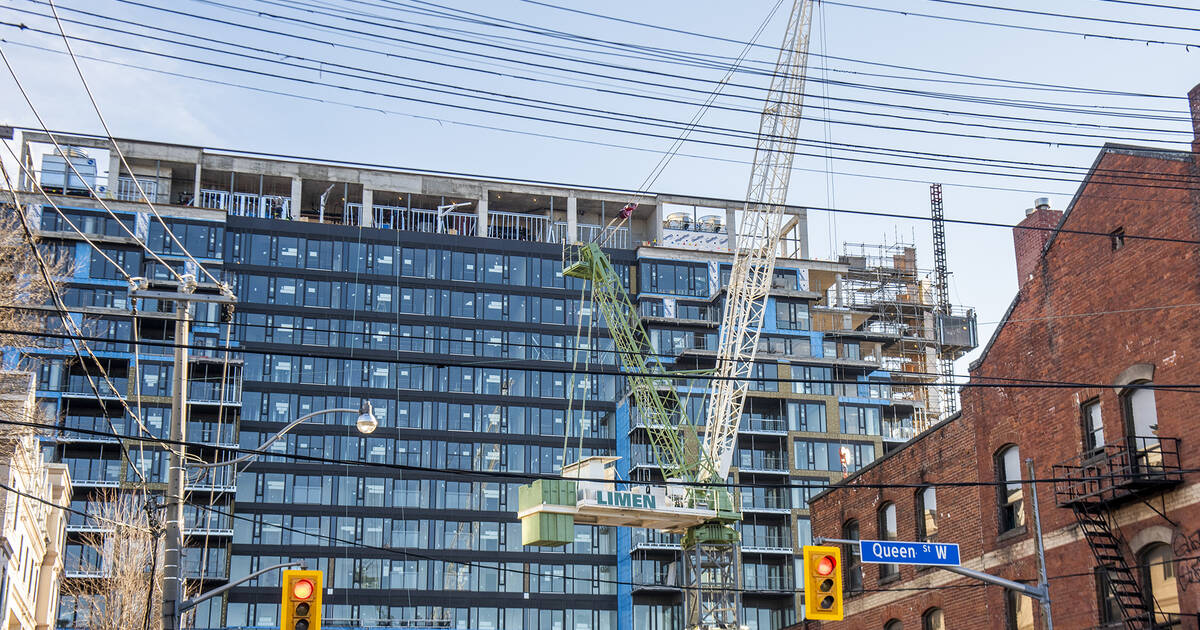
Toronto admittedly may have a bit of a problem respecting its own history given the endless construction of new condo buildings where important landmarks used to be, and residents have been left helpless as they watch their favourite watering holes, music venues and more get turned into highrises that most can't even afford.
Thankfully, buildings with historical and/or cultural significance can be designated as heritage properties, which protects them from demolition and limits to what extent an owner can redevelop them — and it seems a bunch more properties have recently come under consideration for the city's Heritage Register, potentially preserving them, at least for the time being.
The reason why this is happening: “The listing of non-designated properties with cultural heritage value on the Heritage Register will extend interim protection from demolition, should a development or demolition application be submitted.”
— Matt Elliott (@GraphicMatt) November 18, 2020
Though this is great news for history buffs and those who who don't want to see their hometown turned into a cookie-cutter concrete-and-glass jungle, there is one sect of people that the potential for more designated heritage properties has really pissed off: condo developers.
Among the key concerns of opponents is the fact that it's not only stereotypically significant buildings that have made the list, but hundreds that are seemingly "ordinary." There is also the fact that the city is facing a massive affordable housing shortage.
Applications have been submitted to include a total of 966 addresses on Dundas West, Queen West, Roncesvalles, Ossington, King and Queen East, and other parts of the city on the Heritage Register, which is a little daunting for the companies hoping to build here.
Toronto’s heritage staff are working hard to stymie the future. Read the whole thing. This must be opposed. https://t.co/wW04DG81Gf
— Chris Spoke (@ChrisSpoke) November 19, 2020
According to a spokesperson for Toronto Heritage Preservation Services, the heritage register is meant to protect only the heritage attributes of the property, which are often its exterior architecture — hence the oft-criticized "facadectomies," which usually end in awkward-looking blends of a bit of the old with a whole lot of the new.
Potential development of a building is also assessed by the City and heritage planners on a property-by-property basis, and zoning comes into play to determine how a site can be used and converted.
"It's not that it can't become a condo, it just depends on how many alterations are done to the property for it to become a condo and if you want to change the heritage aspects," the spokesperson said. "It's very difficult to generalize."
Properties can also be part of a heritage conservation district, which has stricter guidelines for construction, with reasoning behind why a neighbourhood was identified and its historical and architectural context.
This is a dramatic change. Toronto heritage planning under @MaryPlanningMac has been reluctant to mass-list buildings, even types of obvious historical and architectural importance like schools and religious buildings. 3/
— Alex Bozikovic (@alexbozikovic) November 18, 2020
The Toronto Preservation Board will be meeting Nov. 30 to discuss the hundreds of properties in question. Whichever decision is made for the buildings in the end will undoubtedly incite some sort of backlash and will mean a very different face of the city, whether it be more modern or more true to its past.
Regardless, developers may not have to worry seeing as Doug Ford, who is known to be a proponent of development, has found ways to permit recent condo projects to proceed without due consultation of the City.






0 comments:
Post a Comment